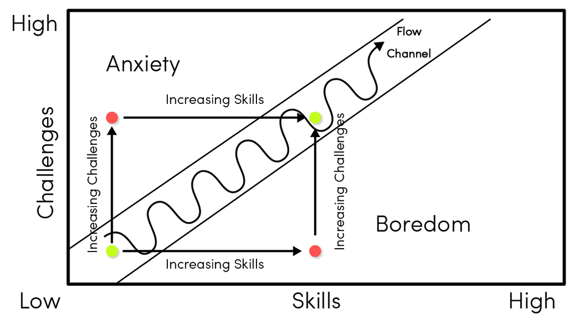Burnout – Beyond the Usual Advice
Whether as a parent, employee, or just a living human in these turbulent times, you might be feeling a little burnt out.
According to the Professional Quality of Life (PROQOL) measure, owned by CVT, “Burnout is characterized by feeling emotionally depleted or drained and can result after a period of long-term, work-related stress. There are three key aspects to burnout which you may experience in varying degrees.
- 1. Emotional exhaustion
- 2. Depersonalization and cynicism
- 3. Feelings of inefficacy” – https://proqol.org/burnout
The PROQOL website includes a free assessment you can take to measures your level of professional satisfaction as well as work-related compassion fatigue or burnout. They also have a page full of resources for self-care, often seen as an antidote to burnout. Some of the things they recommend for those who feel burnt out in their work life are: mindfulness/relaxation practices, attention to sleep and boundaries, varying work activities, and social support. These are absolutely useful tools in alleviating burnout.
I also think there might be a deeper issue at play when people become burnt out. In reading the book “Flow” by Mihaly Csikszentmihalyi, something clicked for me. The author talks about the “flow state” of being so engaged and excited in an activity that you might lose track of time or feel energized by doing it for long periods, rather than fatigued. So we might think of being in “flow” as the opposite of being burnt out – that we sometimes feel so tuned in and satisfied with what we’re doing that we never tire of it.
The author talks about the “flow channel” being the zone where your skill at an activity matches the level of challenge you experience when you do it – so when you’re new at something and don’t have a lot of skills, you are only challenged a little (enough to make it interesting); while when you have been at it a while and you have a higher level of skill, you are also more challenged to continue to grow. See the graphic below for a visual. But often we might have a mismatch – low skills and too high a challenge can lead to anxiety, while high skills and low challenge can lead to boredom. Spending too much time in either kind of gap – anxiety that you can’t do something, or boredom that you’re not being challenged – leads to burn out!
For example, if you’re learning to play tennis, you first need to know that it is possible to improve – so you need a little bit of a challenge but not too much that you feel overwhelmed by anxiety and give up. After you’ve gotten better, you might need more and more challenging opponents so that you enjoy the game and don’t get bored. If all of the time you spend playing tennis is either anxiety-producing or boring, you’re not going to stick with it or enjoy the game.
So if burnout is a disparity between our abilities and our experience, the solutions are to either 1) increase your skills by learning something new or engaging in some training or development, or 2) increase the level of challenge by setting a new goal or requesting more stimulating or demanding tasks. I see this as true in any role or “job” you have, whether it’s at work or at home. If you feel burnt out as an employee, you might need to request more training, professional development, or a new challenge. If you feel burnt out as a parent, you might think about how you can increase your parenting skills by reading or learning a new approach, or you might set an interesting goal for yourself – like trying to give more positive feedback to your kids or partner. If you find a place where (most of the time) you feel like you have enough skill and enough challenge, you’ll feel overall more satisfied with what you’re doing.
How might YOU try to find your way out of burnout and more into the flow?

Blog by: Jessie Everts, PhD LMFT
Photo by: Photo by Tara Winstead via Pexels
